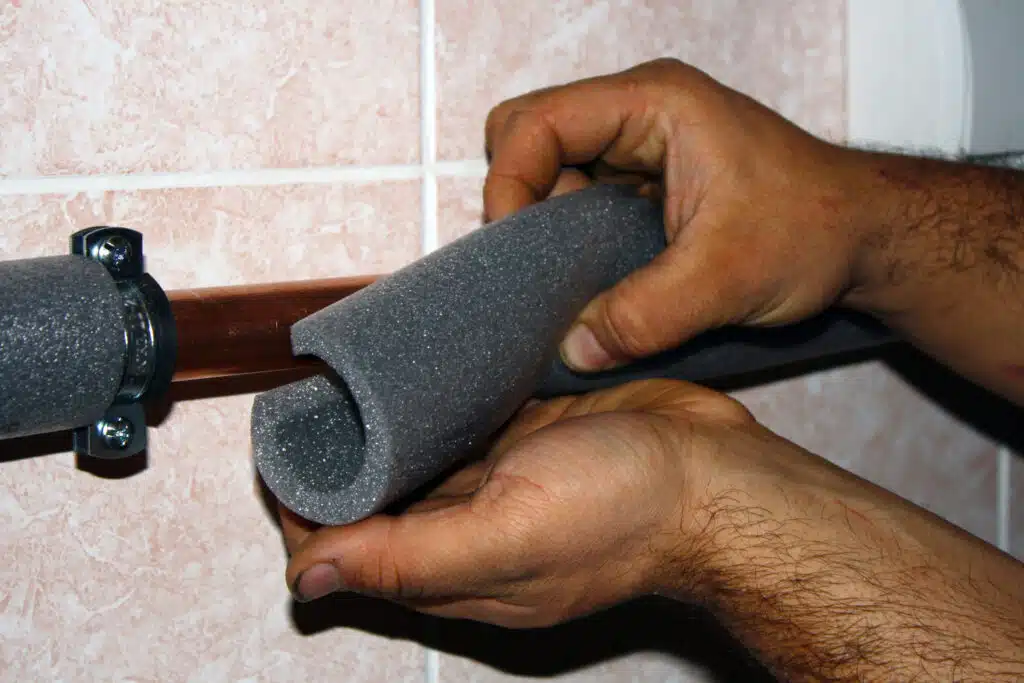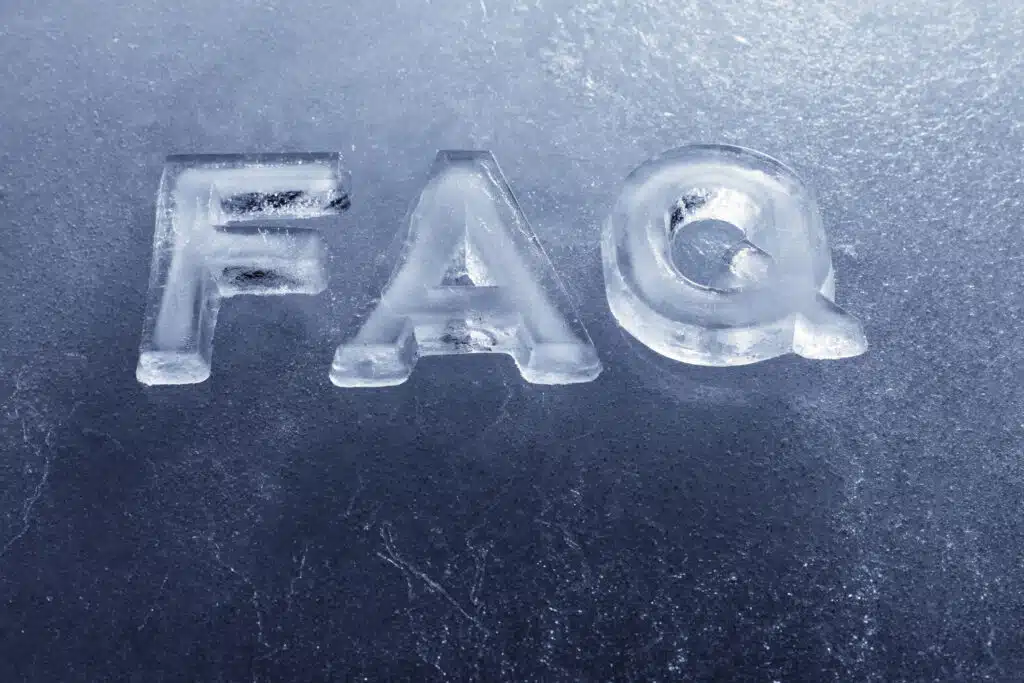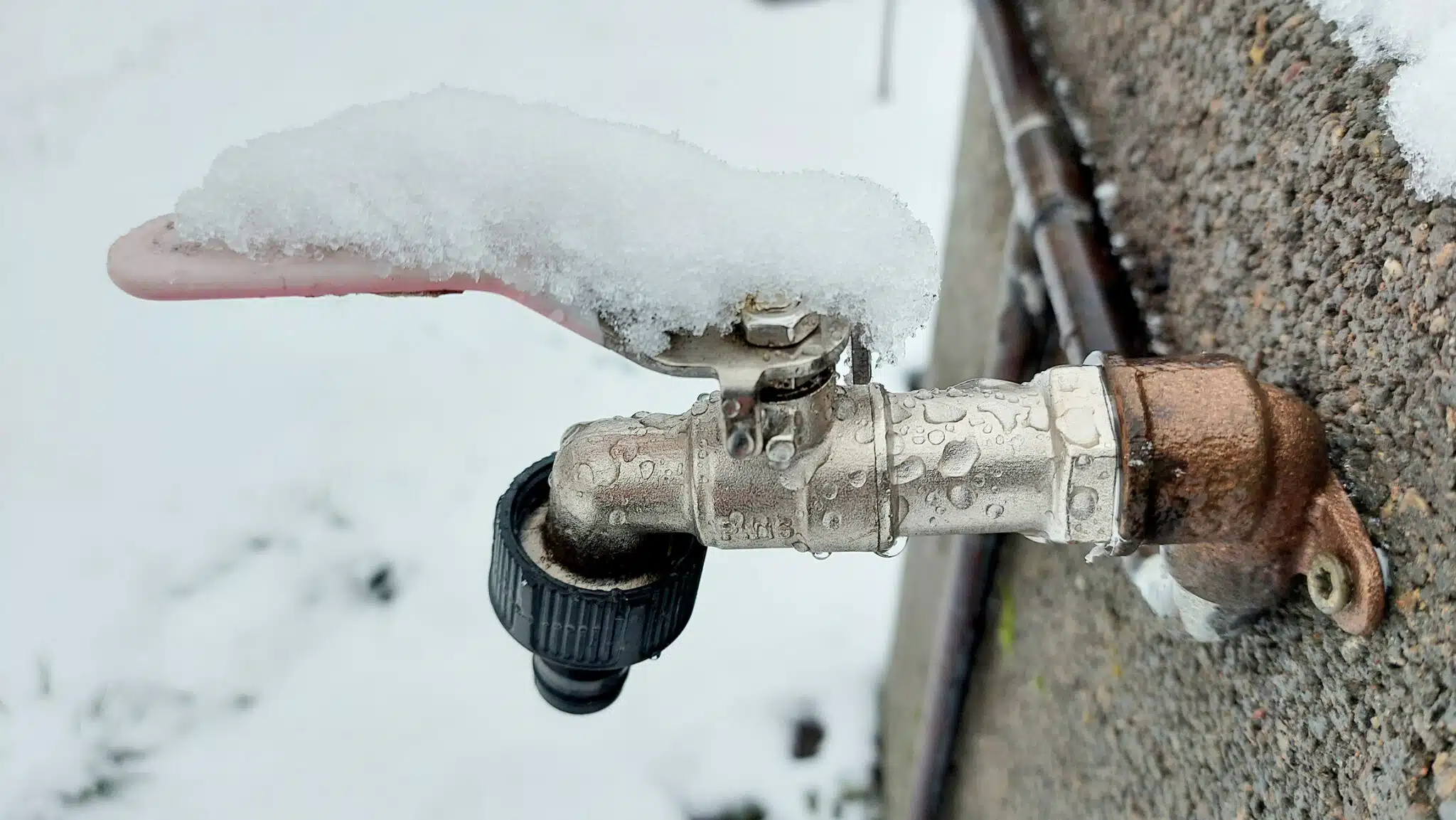Winter is coming, and your plumbing needs to be ready for it! When temperatures in Lancaster, PA start to drop, your pipes and fixtures can feel the chill too. If you don’t take steps to protect them, you might end up dealing with frozen pipes, leaks, or worse—a burst pipe disaster!
The good news is, that with a little preparation, you can keep everything running smoothly and avoid those winter headaches. Let’s dive into some easy tips to winterize your plumbing and keep your home safe and cozy all season long.
Key Steps to Prepare Your Plumbing for Winter
Getting your home ready for winter isn’t just about sealing windows and stocking up on blankets; your plumbing system needs proper attention, too. Winter can bring freezing temperatures that wreak havoc on unprotected pipes, outdoor faucets, and sprinkler systems, leading to costly repairs.
Taking preventive measures now can help you avoid unexpected plumbing emergencies and keep everything running smoothly.
With a bit of planning and effort, you can safeguard your home from frozen pipes, leaks, or even burst lines during Lancaster’s chilly months. Let’s walk through the essential steps to prepare your plumbing for the winter season.

Insulate Your Pipes
The best defense against frozen plumbing is proper pipe insulation, especially in unheated areas like basements, crawl spaces, garages, and attics.
Without adequate insulation, exposed pipes are vulnerable to freezing, which can cause serious plumbing issues if the water inside solidifies and expands, leading to cracked or burst pipes.
Insulating your plumbing with foam pipe sleeves or heat tape is an affordable and easy solution available at any hardware store, and installing it only takes a few minutes.
Disconnect Hoses and Outdoor Faucets
Leaving hoses connected to outdoor faucets is one of the quickest ways to cause damage when the temperature drops. Water trapped inside hoses or faucet pipes can freeze and expand, leading to cracks that may go unnoticed until spring.
Before winter hits, detach all hoses, drain them thoroughly, and store them indoors to prevent freezing. You should also turn off the water supply to outdoor spigots and drain any remaining water from the lines.
Adding faucet covers can provide extra protection from the cold and ensure your outdoor plumbing makes it through the season without issues.
Check for Leaks
Inspecting your plumbing for leaks before winter arrives is an important step in preventing bigger problems down the line. Even minor leaks can worsen in freezing weather as expanding ice puts additional strain on your pipes.
Check under sinks, behind appliances like dishwashers and washing machines, and along any exposed plumbing lines for drips or moisture.
Don’t forget to examine outdoor plumbing areas, as leaks there are often overlooked until major issues arise. Addressing leaks early will keep your water bill in check and reduce the risk of emergency repairs when temperatures drop.
Drain Your Sprinkler System
If your home has a sprinkler system, properly draining it before the first frost is essential to avoid damage to the pipes and valves. Any water left in the system can freeze, expand, and crack the components, causing costly repairs come springtime.
Most systems have a drain valve you can use to release water from the lines, but you may also need to blow out remaining water with compressed air.
If you’re unsure how to do it yourself, hiring a professional to winterize your sprinkler system is a smart investment. A drained sprinkler system will stay safe through winter, ensuring it is ready to keep your lawn green when warmer weather returns.
Winterizing Your Home’s Water Heater
Your water heater works overtime during winter, especially with increased hot water use for showers, dishes, and laundry. If it isn’t properly maintained, it can struggle to keep up, leading to cold showers or, worse, a breakdown in the middle of winter.
Winterizing your water heater ensures it performs efficiently, lasts longer, and avoids unexpected issues when you need it most. Here are three important steps to keep it in top shape all season.
Adjust the Temperature
During the colder months, it is a good idea to raise the water heater’s temperature slightly to ensure it meets the household’s hot water needs. Many experts recommend setting it to around 120°F to 140°F during winter for optimal performance without risking burns or overheating.
Raising the temperature helps offset the cooling effect cold pipes and incoming water can have as temperatures drop. Be careful not to set it too high, as this can lead to unnecessary energy use and higher utility bills. A small adjustment now can ensure everyone stays comfortable with warm showers on chilly mornings.
Flush the Tank
Over time, sediment builds up at the bottom of the water heater tank, which can reduce efficiency and make it harder for the heater to maintain water temperature. Draining and flushing the tank helps remove this buildup, improving performance and extending the life of your water heater.
It is recommended to do this once a year, ideally before the cold season when the heater will be working hardest. Start by turning off the power or gas, connecting a garden hose to the drain valve, and letting the water flow into a drain or bucket. A clean, flushed tank will heat water more effectively and keep your utility bills lower.
Insulate the Heater
Adding insulation to your water heater and the surrounding pipes can make a big difference in maintaining water temperature during cold months. Older water heaters benefit especially from insulation blankets, which help trap heat and reduce standby energy loss.
If your heater is located in a cold basement or garage, insulating the pipes connected to it prevents heat loss as hot water moves through the system.
Pipe sleeves or heat tape are quick, inexpensive fixes that will help your water heater run more efficiently. Insulating your water heater not only keeps showers warm but also saves money on energy costs throughout winter.
Tips for Preventing Frozen Pipes
Frozen pipes are not just inconvenient; they can cause significant damage if they burst, leading to expensive repairs and water damage. Fortunately, taking a few preventative steps can go a long way in keeping your plumbing safe, even during the coldest nights in Lancaster.
These simple actions will ensure that water continues to flow smoothly, saving you from the stress and cost of emergency repairs. Pipes in unheated areas, such as basements, attics, and garages, are the most at risk, so extra care is needed in these spaces. Follow these practical tips to keep your plumbing protected all winter long.
Keep the Heat On
Even if you’re traveling or leaving town for a few days, it is essential to leave the heat running to prevent your pipes from freezing. Setting the thermostat to at least 55°F ensures that all areas of your home, including basements and crawl spaces, stay warm enough to avoid freezing.
It might seem like a waste of energy, but frozen pipes that burst can lead to far more expensive repairs than a slightly higher heating bill.
Pipes in poorly insulated walls are particularly vulnerable, and a short exposure to freezing temperatures can cause them to freeze solid. Keeping the heat steady throughout your home ensures your plumbing stays intact and functional during Lancaster’s cold months.
Open Cabinet Doors
Pipes under sinks or inside cabinets, especially those near exterior walls, don’t always get enough heat to stay above freezing. Opening cabinet doors allow warm air to circulate around these pipes, helping to prevent them from freezing overnight.
This small habit makes a big difference in kitchens and bathrooms where plumbing is tucked away behind closed doors. On particularly cold nights, open the cabinets under all sinks to give those pipes a little extra warmth. It is a simple but effective way to avoid waking up to frozen pipes when Lancaster’s winter hits hard.
Let Faucets Drip
Allowing your faucets to drip slightly during extreme cold is an easy way to keep water moving through your pipes, preventing blockages caused by freezing. When water freezes inside a pipe, it creates pressure that can lead to cracks or bursts, but a slow trickle keeps things flowing and reduces this risk.
Focus on faucets connected to pipes along exterior walls, which are more likely to freeze than those in heated areas. Even a small drip can relieve pressure in the system and protect your plumbing from damage. While it may seem like a waste of water, the cost of a burst pipe is much higher than a little extra water usage.
What to Do If Your Pipes Freeze
Even with the best preparation, pipes can still freeze during especially harsh winters. Knowing the signs of frozen pipes and acting quickly can prevent them from bursting and causing serious water damage.
The key is to identify the problem early and follow a few simple steps to thaw your pipes safely. If the situation gets out of hand, calling in a professional plumber can save you from costly repairs. Here’s what you need to know if your pipes freeze this winter.
Signs of Frozen Pipes
Recognizing the signs of a frozen pipe early can help you avoid further damage. The most obvious sign is little to no water flow from your faucets, especially in cold areas of your home.
You may also notice frost or condensation forming on exposed pipes, a clear indicator that the water inside has frozen. In some cases, frozen pipes will cause strange smells to come from faucets or drains due to blockages in the lines.
If your pipes are making unusual noises, like gurgling or clanking, that could also be a sign of trouble. Acting fast when you see these signs can stop the situation from getting worse.
Steps to Thaw Frozen Pipes
If you suspect a pipe has frozen, it’s important to thaw it carefully to avoid further damage. Acting quickly and following the proper steps can prevent the pipe from bursting and reduce the risk of costly repairs. Here’s how to safely restore water flow in a frozen pipe:
- Turn on the faucet connected to the frozen pipe, even if no water comes out. This helps relieve any built-up pressure and allows water to start flowing once the ice begins to melt. Keeping the faucet open ensures the melted water can escape, reducing the chance of further blockage.
- Use a hairdryer or space heater to gently apply heat to the pipe, starting at the faucet and working your way toward the frozen section. This method allows the ice to melt gradually without causing sudden pressure changes. Be patient, as rushing the process could stress the pipe and cause cracks.
- Avoid using open flames, such as a blowtorch or lighter, as they pose serious fire risks and can damage your pipe. Plastic pipes, in particular, are sensitive to heat and could melt, while metal pipes can become dangerously hot and cause injuries.
- Wrap the pipe with warm towels soaked in hot water if you don’t have a hairdryer or heater available. This is a safe and effective way to introduce warmth gradually, especially in hard-to-reach areas. You may need to reapply hot water to the towels every few minutes to keep them warm.
- Keep the faucet running once the water begins to flow again. Allow it to run for several minutes to flush out any remaining ice in the pipe. This ensures there are no lingering blockages that could cause the pipe to refreeze later.
If the water doesn’t start flowing after trying these steps, or if you notice a crack or leak in the pipe, it’s time to call Benjamin Franklin Plumbing of Lancaster. Acting quickly can save your home from serious water damage and give you peace of mind during the coldest months.
When to Call a Professional
While some frozen pipes can be thawed at home, others may require the help of a professional plumber. If you’re unable to locate the frozen section or the pipe shows signs of cracking, it’s best to call for assistance right away.
A plumber will have the proper tools to thaw pipes safely and make any necessary repairs. If multiple pipes are frozen or you suspect a major blockage, waiting too long to get help could result in burst pipes and water damage.
Hiring a professional can also prevent future issues, as they can inspect your system for vulnerabilities. It’s always better to be safe than sorry when it comes to frozen pipes.
Don’t Let Winter Plumbing Problems Catch You Off Guard
Winter can be tough on pipes, but Benjamin Franklin Plumbing of Lancaster is here to help you prepare your home for the cold months ahead. From insulating pipes to fixing leaks, we’ll ensure your plumbing stays in top shape through Lancaster’s harsh winter weather.
Don’t wait until frozen pipes become a costly problem—schedule your winter plumbing check-up today and enjoy peace of mind all season long!

FAQs About Plumbing
How do I know if my pipes are at risk of freezing?
Pipes are most at risk in unheated areas like basements, attics, garages, or exterior walls, where temperatures can drop quickly. In Lancaster, PA, cold snaps below 32°F can freeze uninsulated pipes or outdoor faucets. Insulating your pipes and preparing them before winter hits is the best way to keep them safe.
What should I do if I notice a leak?
First, turn off your water supply immediately to stop the leak from getting worse. Inspect the area to determine if it is a loose connection, cracked pipe, or broken fixture. Small leaks can be fixed with sealant or tape, but larger ones may need professional help.
How can I tell if my water heater needs maintenance?
Inconsistent water temperatures, strange noises from the tank, or rust-colored water are signs of trouble. If it takes longer to heat water, sediment buildup may be slowing the system. Flushing the tank and adding insulation ensures it runs smoothly through winter.
Is it too late to prepare my plumbing for winter?
It is never too late to protect your pipes from freezing—even in the middle of winter. Insulate pipes, disconnect hoses, and let faucets drip on cold nights to avoid freezing. Every small action can help reduce the chance of burst pipes and costly repairs.
When should I call a plumber for winter plumbing issues?
Call a plumber if your pipes freeze, or burst, or if you notice significant leaks. Professional help is also recommended if your water heater isn’t functioning or your sprinkler system isn’t properly winterized. Addressing plumbing problems early can save you from major damage and stress later.
What are some signs that my outdoor plumbing needs maintenance?
Be on the lookout for visible leaks, reduced water pressure, or signs of corrosion on your outdoor fixtures. Also, listen for unusual noises when using taps or sprinkler systems, which can indicate air in the pipes or other problems. Addressing these signs promptly can prevent more significant issues and extend the life of your outdoor plumbing.









